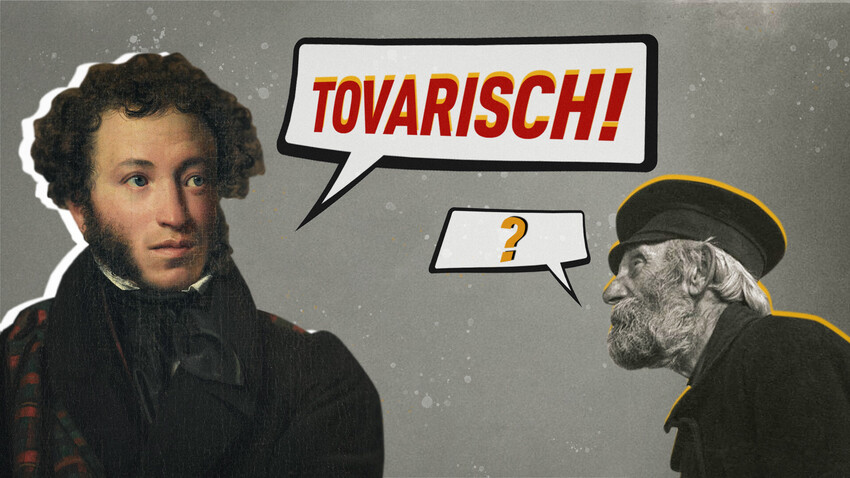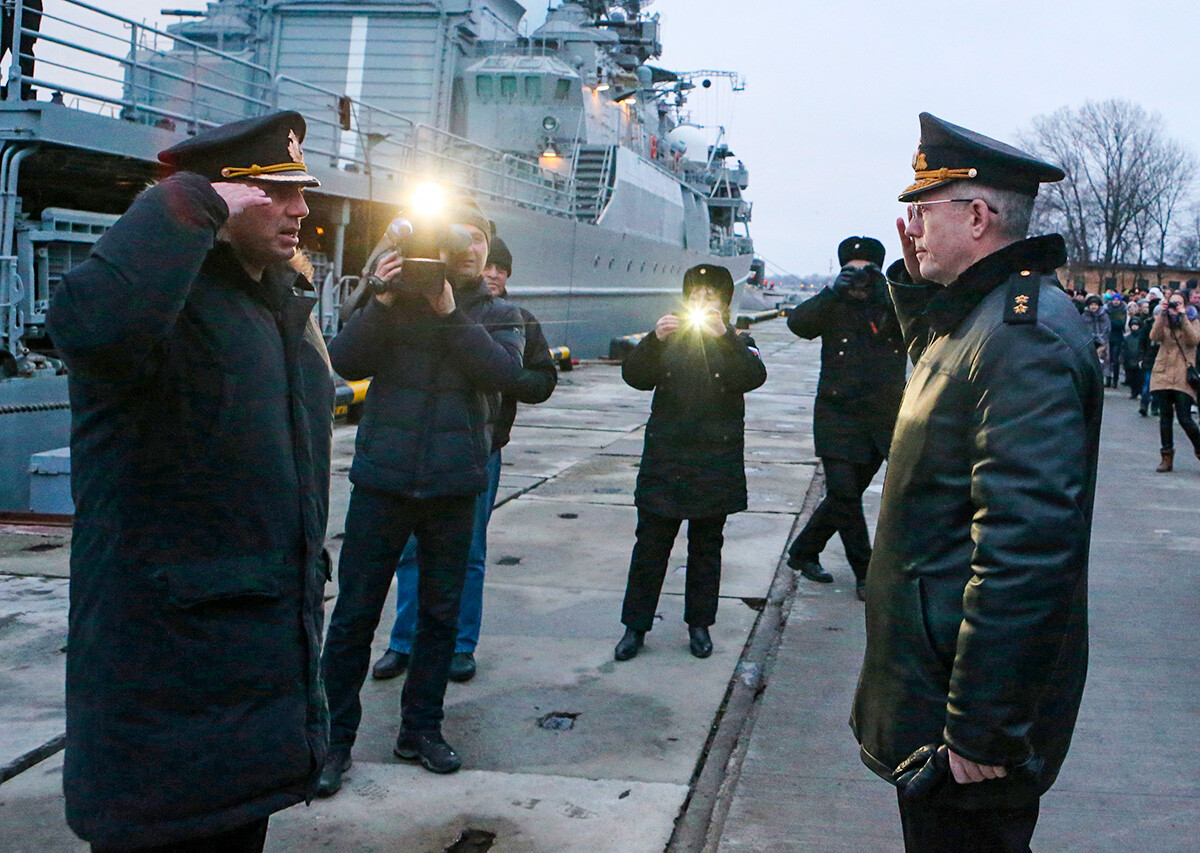
“Tovarisch, believe: she will rise, star of captivating happiness.” These lines from the poem ‘To Chaadayev’ by Alexander Pushkin are probably the first time the word ‘tovarisch’ (which is actually a Russian word for ‘comrade’) was used in Russian poetry and it was used in the meaning ‘friend’. Meanwhile, in the early 19th century, when these lines were written, the word ‘tovarisch’ had a different meaning.
Since 1802 in Russia, ‘tovarisch’ was a name for a governmental position, which basically meant ‘deputy’: ‘the minister’s tovarisch’ meant ‘deputy minister’. In the Russian language before the 19th century, ‘tovarisch’ was also used to define a partner in business that sells the same goods as you do, because ‘tovarisch’ is derived from the word ‘tovar’ (‘a product’).
In its “friendly” sense of the word, ‘tovarisch’ (as ‘friend’, not ‘business associate’) became an adaptation of the word ‘comrade’, widely used among the revolutionary circles in France since the 1790s. By the end of the 19th century, ‘tovarisch’ in Russian became a staple addressing form for the socialists – we look at it in closer detail in a separate article.
The “revolutionary” air to the word ‘tovarisch’ in Russian is also brought by the fact Pushkin used it in his poem. We know that Pushkin sympathized with the Decemberists, people who revolted against the Romanovs’ rule. Moreover, Pyotr Chaadayev, to whom the poem was addressed, was also an avid critic of the ruling regime. So, ‘tovarisch’ was closely associated with the air of revolution.
In the Soviet times, ‘tovarisch’ (along with ‘grazhdanin’ – ‘citizen’) became a usual form of polite address to an unknown person among the USSR’s citizens. After the end of the USSR, this form of address came to be associated with the Soviet times and fell out of active use, especially among the younger generations.

In colloquial Russian these days, ‘tovarisch’ is used rather ironically. But, it is still officially used in the Russian Armed Forces, where it’s a compulsory formal address. Superiors and seniors addressing subordinates and juniors on service issues, call them by their military rank and last name (‘sub-lieutenant Smirnov’) – or only by military rank and then ‘tovarisch’ is used before the military rank: ‘tovarisch sub-lieutenant’. Subordinates and juniors, addressing service issues to superiors and seniors, call them by military rank, adding the word ‘tovarisch’ before the military rank (juniors aren’t allowed to call superiors by their last name). So, in the end, quite a lot of Russians who serve in the military still officially use ‘tovarisch’ on a daily basis.
If using any of Russia Beyond's content, partly or in full, always provide an active hyperlink to the original material.
Subscribe
to our newsletter!
Get the week's best stories straight to your inbox